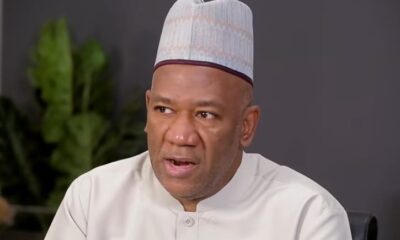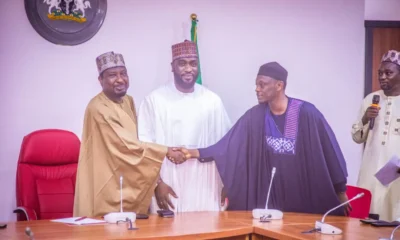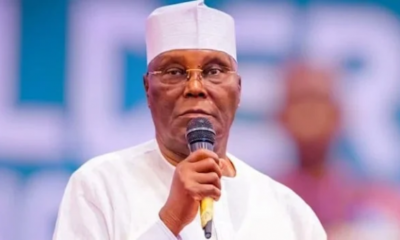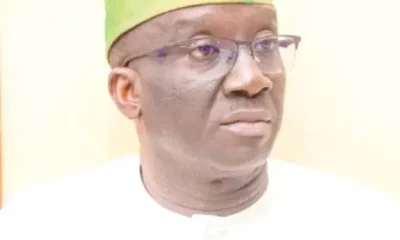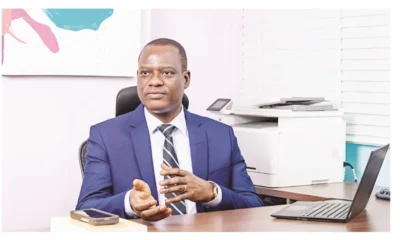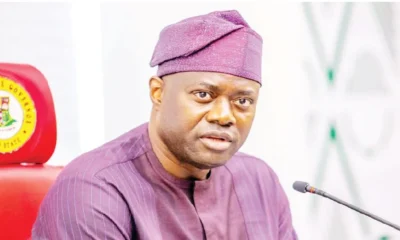News
Nigeria @65: Tinubu’s reforms yet to ease hardship – Experts
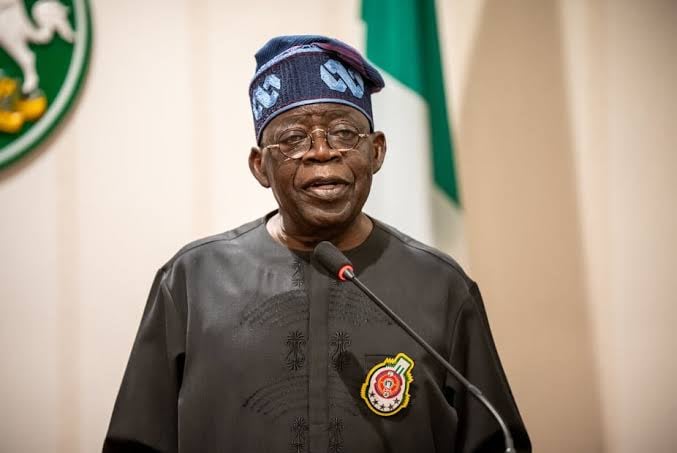
As Nigeria marked its 65th Independence anniversary, President Bola Tinubu rolled out a list of what he described as “remarkable milestones” achieved in two years of tough reforms. But members of the Organised Private Sector, economists, farmers, and governance experts have warned that while macroeconomic indicators point to stability, households continue to grapple with unrelenting hardship, rising food prices, and fragile livelihoods.
In his nationwide broadcast, Tinubu declared that “the worst is over” for the economy, citing record-breaking non-oil revenue of over N20tn by August 2025, external reserves peaking at $42.03bn—the highest since 2019—, and a reduction in the debt service-to-revenue ratio from 97 per cent to below 50 per cent. He also highlighted a trade surplus of N7.46tn in the second quarter of 2025, increased crude oil output of 1.68 million barrels per day, and the commencement of local petrol refining for the first time in four decades.
“These are signs of an economy on the mend,” Tinubu said, adding that reforms, including ending fuel subsidies and unifying the exchange rate, had been painful but necessary to reset the economy and secure Nigeria’s future.
He also pointed to N330bn disbursed under social investment programmes to eight million vulnerable households and insisted that his administration was laying a foundation for prosperity, food security, reliable electricity, better education, and improved healthcare.
OPS demands more
While acknowledging the progress, the Nigerian Association of Small-Scale Industrialists argued that until achievements reflect in household welfare, they remain statistics. NASSI National Vice President Segun Kuti-George said, “The claims that he made are figures; they are statistics that can be verified. But it is when it trickles down into the microeconomy that the man on the street can feel the impact.”
He stressed that infrastructural development—especially roads and rail—was vital to unlocking grassroots economic activity. “If you construct a road in a barren forest, you will see economic development immediately there,” he explained.
Kuti-George also praised the administration for transparency in the use of borrowed funds, a first in Nigeria’s recent history. “For the first time, we are borrowing money, and there is transparency on how they are applying it,” he said, but cautioned that Nigerians were still waiting for the tangible benefits.
President of the Association of Small Business Owners of Nigeria, Dr Femi Egbesola, was more critical. He described the N25,000–N50,000 cash transfers as inadequate, given a population of over 200 million. “Yes, the figures are good news, but how does this translate to the gains of the common man on the streets?” he asked.
He insisted that reforms must be paired with stronger social safety nets and lower interest rates to encourage enterprise. “The interest rate is between 25 and 28 per cent. How many people can do business with that kind of rate?” he queried.
Professor Segun Ajibola of Babcock University described the milestones as “robust nominal improvements” but not sufficient to change welfare outcomes. “The next level is how would these nominal improvements affect the real-life situation of the masses?” he asked. He dismissed palliatives as unsustainable, urging empowerment programmes that build long-term income sources.
Professor Godwin Oyedokun of Lead City University urged patience, noting that reforms naturally come with pain. “Many Nigerians want a quick fix which will not work,” he said. He also cautioned against over-reliance on tax-to-GDP ratios as measures of progress, pointing to the vast informal economy.
Development economist Dr Aliyu Ilias argued that what Nigeria was experiencing was “stability, not growth,” stressing that food inflation remained the biggest drag. He called for support for farmers, irrigation systems, and efficient supply chains. “Until disposable income improves, it cannot be said that growth has taken place,” he noted.
Dr Muda Yusuf of the Centre for the Promotion of Private Enterprise added historical context, describing Nigeria’s economic history as one of “resilience, crises, and missed opportunities.” While commending subsidy removal and exchange rate unification, he stressed that reforms must be complemented by food security programmes, job creation, and social protection. “Restoring security in food-producing regions is not just a social imperative but an economic one,” he warned.
Economist Adewale Abimbola pointed out that decelerating inflation does not mean prices are falling. “Households, especially those at the bottom of the pyramid, are still finding it difficult to cope,” he said, urging targeted agricultural investment and effective safety nets.
Veteran economist Professor Akpan Ekpo was more blunt, stating that 80 per cent of Nigerians still lack basic needs. “We have not reached industrialisation or real diversification. We are not there yet,” he argued.
Farmers decry insecurity
Farmers underscored their frustration with insecurity, high fertiliser costs, and poor support. National Cashew Farmers President Yunusa Enemali said agriculture could create millions of jobs if given priority. “Any nation that cannot feed its citizens will be full of hungry human beings,” he warned.
He criticised policymakers for sidelining farmers’ voices. “Before now, our agriculture was not driven by PhD holders, but by mere farmers who were in the field. They know the challenges, they know the solutions,” he argued.
Peter Dama, Chairman of the Competitive African Rice Forum, highlighted high input costs and insecurity as critical barriers. “Farmers are kidnapped and killed in the fields. How do you expect them to return to farming?” he asked. He urged government action on cheaper fertilisers, irrigation, and rural infrastructure.
CEO of Cowry Treasurers Limited, Charles Sanni, warned that rising debt could undermine long-term growth. “It is one thing to borrow, it is another thing to owe,” he said. He lamented that despite increased allocations to states, infrastructure and hospitals remain poor. “Growth figures alone do not equate to prosperity,” he cautioned.
The Chartered Institute of Directors Nigeria expressed concern that despite reforms, insecurity, poor governance, and weak infrastructure undermine progress. Its President, Adetunji Oyebanji, said independence should be a moment of sober reflection. “Most Nigerians are yet to experience the impact because growth has not translated to improved income and prosperity,” he said.
He stressed that ethical leadership, accountability, and transparency were critical. “Let this 65th anniversary be a turning point where leaders and citizens choose governance over impunity, accountability over corruption, and unity over division,” he urged.
Across the board, the message from experts, OPS, and farmers is clear: while Nigeria has recorded notable macroeconomic stability, the missing link is a clear transmission mechanism to households. Infrastructure, food security, social safety nets, lower interest rates, and empowerment schemes remain the pathways to ensuring that growth figures are not just statistics but realities in the lives of Nigerians.
As Professor Ajibola summed up, “There’s a need for a transmission that will carry the benefits already recorded to the doorstep of an average Nigerian.”(Punch)
-

 Politics6 hours ago
Politics6 hours agoWhoever seeks to defeat Tinubu must show red eyes… no court victory – Datti Baba-Ahmed
-

 Business21 hours ago
Business21 hours agoBanks to charge 7.5 VAT on mobile transfer, PoS transaction fees
-

 Politics6 hours ago
Politics6 hours agoAtiku’s Son Endorses Tinubu For 2027
-

 Politics6 hours ago
Politics6 hours agoAtiku breaks silence as son dumps PDP, declares support for Tinubu’s re-election
-

 News6 hours ago
News6 hours agoMost Kidnapping, Violence In Ekpoma Carried Out By Locals – Okpebholo
-

 Business21 hours ago
Business21 hours agoOyedele denies suspension of tax laws guidelines
-

 Metro5 hours ago
Metro5 hours agoAlaafin kicks as Makinde installs Ladoja chairman of Obas council
-

 Politics5 hours ago
Politics5 hours agoRivers crisis: Assembly shelves sitting amid rumoured plot against Speaker



